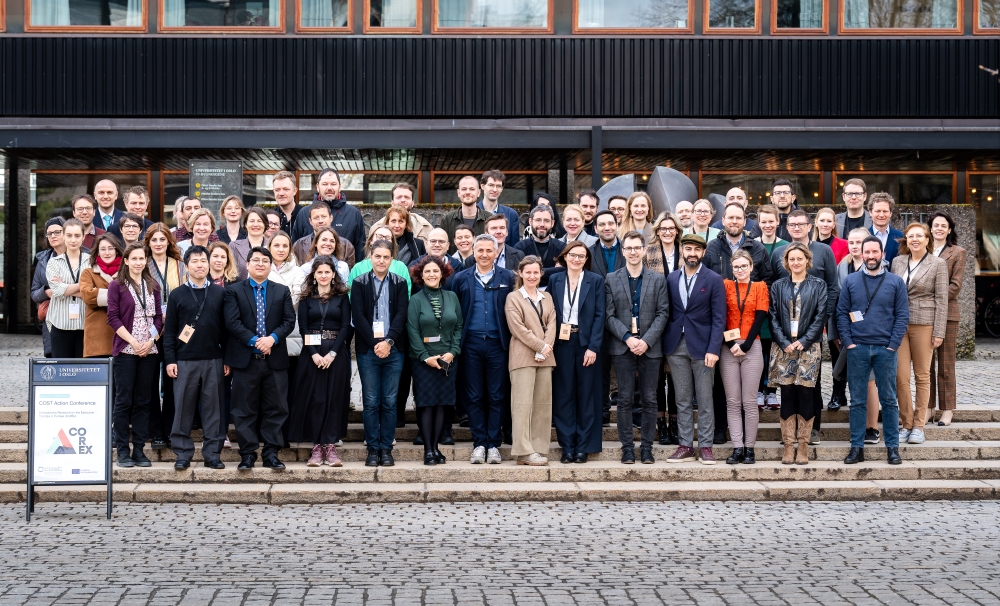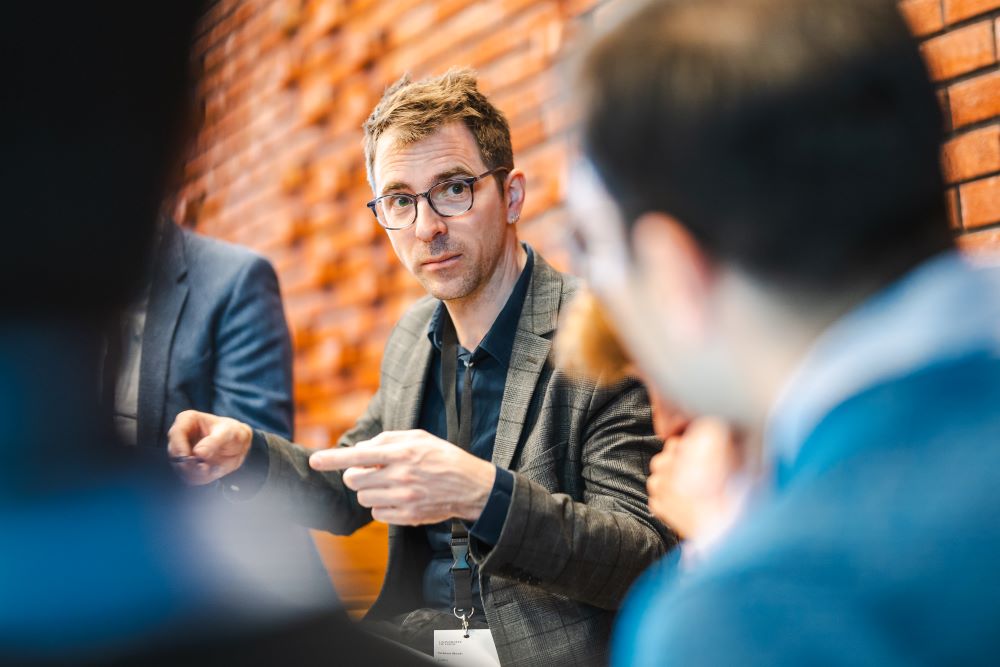The international research network "Comparative Research on the Executive Triangle in Europe" (COREX) recently held its inaugural in-person working group meeting in Oslo on April 25-26. The conference brought together a diverse group of more than 90 researchers from more than 30 countries, including several colleagues from the Department of Political Science. The meeting was kicked off by Jacob Nyrup, who presented the WhoGov dataset on ministers from around the world in a keynote.
Largest network in research field
The network’s primary objective is to systematically gather comparative data and develop new conceptual insights into the executive triangle. This involves studying the relationships between political executives, senior-level bureaucrats, and political advisers across Europe in various ways. These actors and their mutual relationships significantly shape policymaking. Their capacity to solve problems and to make legitimate decisions are at the core of democratic governance. COREX is the largest initiative to date in terms of the number of involved researchers and country coverage, including a significant number of countries in Central and Eastern Europe and the Western Balkans.

New data on democratic governance
The COREX working groups will collect comparative data on the institutional structure, career backgrounds, roles, interactions, accountability, and transparency of the executive triangle across different regions and time periods. This will enable systematic analyses of trends, causes, and consequences of different configurations of the executive triangle. These insights will contribute to a better understanding of democratic governance in times of increasing political polarization and populist politics.

Shared understanding of executive triangle
The Oslo meeting primarily focused on establishing a shared understanding of the executive triangle, which can take on diverse forms across Europe. All participants are country or methods experts and shared insights from their own research. Additionally, participants discussed strategies for data collection, data management, research ethics, and the systematic inclusion of early-career scholars in the network’s activities.
You can find more information on CoREx and how to join the network on the COST website: https://www.cost.eu/actions/CA22150/
